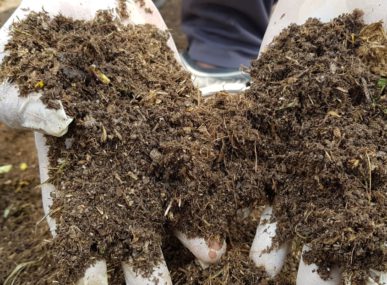Morocco impressed the world from 2005 by introducing Plan Maroc Vert, a sweeping environmental program aimed at making the country’s agriculture and manufacturing sectors more sustainable. The reforms include laws requiring companies to dispose of wastewater responsibly and, if possible, recycle it for further use.
This ambition can only become a reality with people like Zouhair Chakir, the founder of mobile wastewater treatment business STEPMOBILE. Chakir will help smaller scale businesses to safely dispose of the water that they use, allowing them to comply with tough regulations about industrial waste.
The government reforms were introduced because Morocco faces a raft of environmental challenges, especially in relation to water. Annual reserves only extend to 1000 cubic meters of water per capita, a rate that is considered perilously close to scarcity. An increasing population means that Morocco is generating more and more wastewater which, if left untreated, can wreak havoc on the environment.
The devil, however, is in implementing these environmental regulations. “The government has the power to penalize industry for non-compliance with wastewater laws,” says Chakir, “but small and medium-sized companies do not have the infrastructure to comply.”
STEPMOBILE will offer a practical solution, visiting these businesses with a mobile plant for treating wastewater. This will allow companies to observe environmental regulations without incurring the expense and logistical hassle of maintaining a permanent wastewater treatment facility.
A lucrative market gap:
In 2014, Chakir came up with the idea for STEPMOBILE while working as an engineer for a large Moroccan manufacturing company. His employer had the resources to maintain permanent staff and facilities for wastewater disposal, but the same was far from true for other Moroccan businesses.
Chakir identified three challenges faced by small and medium-sized companies in handling wastewater, all of which pointed to a lucrative market gap. “These businesses do not have the space for treatment plants, they do not have the technical staff, and they do not have the money [for permanent infrastructure],” he says.
These realities convinced Chakir that strong demand exists in Morocco for a business like STEPMOBILE, which can treat water for safe disposal and reuse in industry. He takes further confidence from interest shown by his contacts throughout the manufacturing sector. “People I have worked with in the industry believe in the concept,” he confidently adds.
The company will offer its drop-in wastewater treatment services to a broad spectrum of clients, from food producers to pharmaceutical firms to textile manufacturers. “We are very flexible in our work and can treat [all types of] wastewater,” says Chakir.



